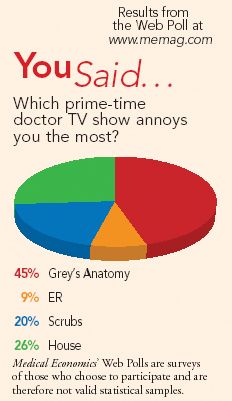Article
Update
Author(s):
Practice and financial news you can use
MEDICARE
Fighting for off-label coverage
If a drug is medically necessary for a patient, the government should pay for it, even if it falls outside the parameters of off-label uses that it will cover. That's the thrust of a lawsuit filed in federal district court by the Medicare Rights Center, a patient advocate, on behalf of Judith M. Layzer, an elderly widow who has been taking Cetrotide since 1999 to treat her ovarian cancer. According to the complaint, Layzer had never paid more than $40 a month out of her own pocket for the medication. But soon after enrolling in Medicare Part D in January 2006, she was denied coverage for her prescription and her monthly tab shot up to over $7,200. (In 2006, Layzer's former employer, the City of New York, moved all of its retiree members to the City of New York enhanced Medicare Part D Program, which is administered by GHI-the same company that used to cover her medications as a retiree.)
INVESTING
Another measure of a good mutual fund
Investment returns and expenses have always been important considerations in deciding on a mutual fund. Now, add Morningstar's "Stewardship Grades" to the mix. Introduced in 2004 but recently improved upon, these grades attempt to measure how well-or how poorly-fund managers and fund companies align their interests with those of individual investors. Among the things Morningstar considers are the corporate culture, the quality of the fund's board, and whether the company has kept its nose clean with securities regulators. Of the more than 1,000 funds tested under the new grading system, a mere 6 percent received As. Top-rated fund families for stewardship include T. Rowe Price and Vanguard. Those scoring poorly included Morgan Stanley, Putnam, and Wells Fargo. (To view the grades, go to http://www.morningstar.com and click on Top Stewardship Grades under Fund Research.)
MID-LEVELS
What a PA will cost you
Are you thinking about hiring a physician assistant to ease patient wait times or to handle some new ancillary service you'd like to offer? If you haven't crunched the numbers yet, you can expect to pay roughly $72,000 a year for a PA who graduated in 2006 and more than $82,000 annually for one who has been in practice for one or more years, according to a survey conducted by the American Academy of Physician Assistants. (Depending on where you practice, salaries may be slightly higher or lower.) Of those PAs who responded, 38 percent said they practice in hospital settings, 31 percent work in group settings, and another 12 percent see patients in solo practices. The table shows who's most likely to hire PAs.






